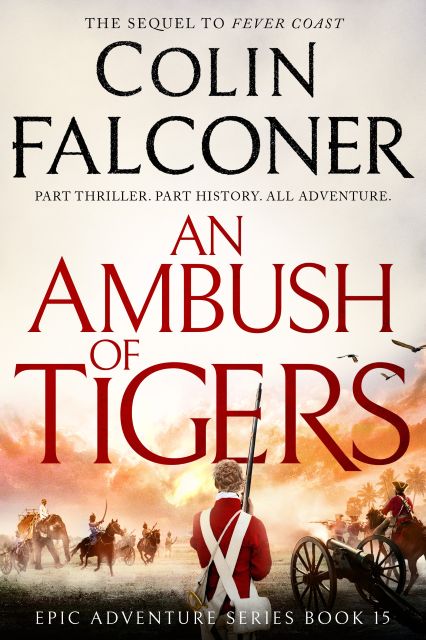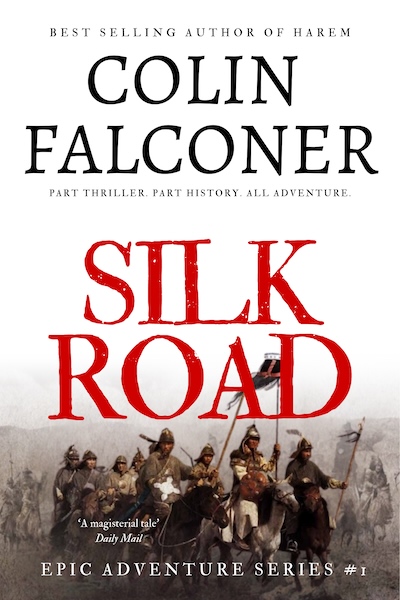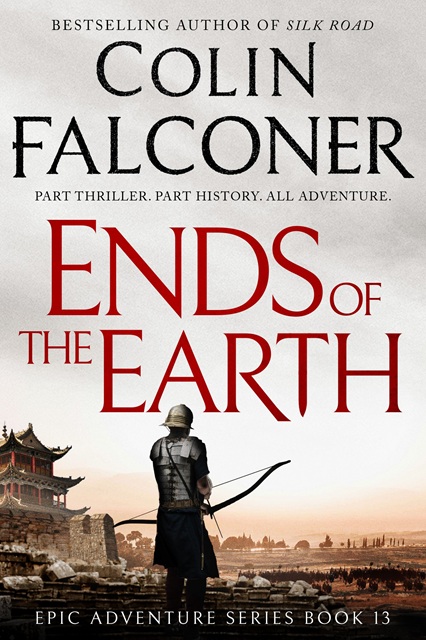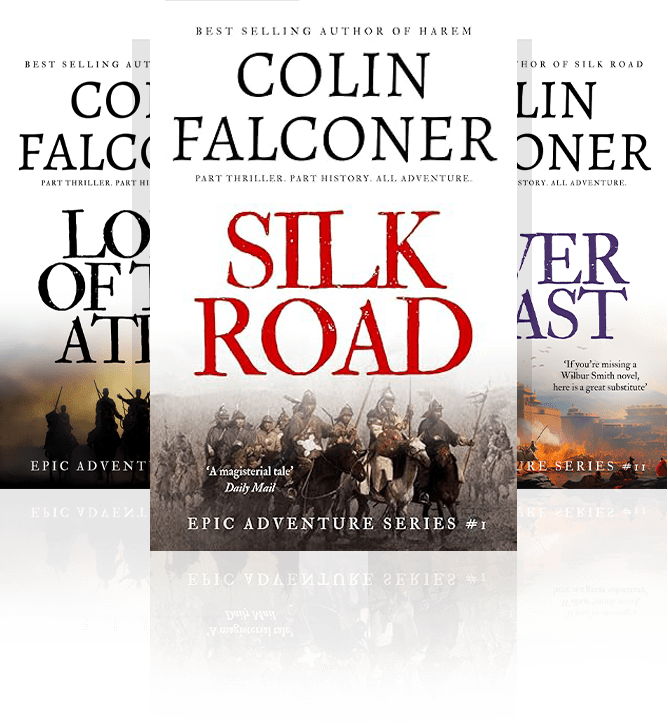And the man who did it first
Marco Polo. His name has become a byword for epic adventure. The man who, in the 13th century, explored the Silk Road all the way to China.
Or did he?
There are historians who claim he simply wrote down gossip he heard from other merchants. Others have accused him of being an armchair traveller who never went further east than Persia. Some even question whether he ever left Venice.
Marco Polo’s fellow Venetians certainly didn’t believe him. They called him Messer Marco Milioni, Mister Marco Millions, a snide reference to his claims that Kublai Khan was the richest man in the world.
Their scepticism is understandable. After all, in the Middle-Ages his assertions must have sounded outlandish at best.
I decided to research his story for myself.
Marco Polo set off to the East with his father and uncle in 1271 while still in his teens. His family were merchants, and they were looking to turn a profit.
He reappeared in 1295, after twenty-four years away, claiming that he’d travelled all the way to Xanadu and back. He told anyone who cared to listen that he had been an ambassador and tax collector for the Mongol emperor. He described the khan’s postal service and handed around hand-drawn maps of Alaska. He even said he’d seen Christian churches there.
It all sounded bizarre to thirteenth century Venetians.
Modern historians have been equally incredulous. Some point out that he failed to mention the Great Wall of China, tea, Chinese characters or foot-binding.
But it isn’t valid criticism.
The Great Wall, as we know it, wasn’t built until two hundred years later. Also, Marco Polo’s Mongol hosts were not Chinese. They didn’t drink tea or write in Chinese script. They certainly didn’t bind women’s feet. Mongol women did much the same work as men.
Marco Polo instead described commercial details that would have had a particular interest for him, such as profit margins on salt mining.
And he was right about the spread of Christianity: there were six Nestorian churches in Khublai’s empire, founded by a Sogdian priest from Samarkand.
Further evidence of his veracity is how he was able to accurately describe night–time constellations in the East to the Italian astrologer, Pietro d’Abano.
The account of his travels.
We may never have heard of Marco Polo at all except that in 1298, three years after he returned from his journey, he was captured by the Genoans in a naval battle.
His cell mate in prison was Rustichello of Pisa, a talented writer of romances, who took on the job as his ghost writer. They finished an account of his travels during the year they were locked up.
Profit Margins on Salt Production in Cathay wasn’t a catchy enough title, so Rustichello called it The Book of Marvels. He added a few fantastic and romantic elements to turn it into a bestseller.
Which is why the account of Marco Polo’s meeting with Kublai Khan at the court in Shang’tu is almost identical to the arrival of Rustichello’s Tristan at the court of King Arthur in one of his stories.
It’s also why the Polo family were said to have provided the Mongols with military equipment for their successful siege of Xiangyang, which took place two years before they left Venice.
Just Rustichello bending the truth a little for commercial appeal, as novelists have always done.
But does that mean Marco Polo didn’t go to China?
The balance of probabilities says to me that he most certainly did. And he never backed down from his tale. Even on his deathbed, he stuck to his guns.
His last words were, ‘I did not tell half of what I saw.’
FOOTNOTE: William of Rubruck travelled to Cathay before Marco Polo to try to convert the Mongols to Christianity. I tell his story in my best-selling historical thriller, Silk Road.
🔗 Grab your copy of Silk Road here on Amazon in Kindle Unlimited, Kindle eBook and paperback.








